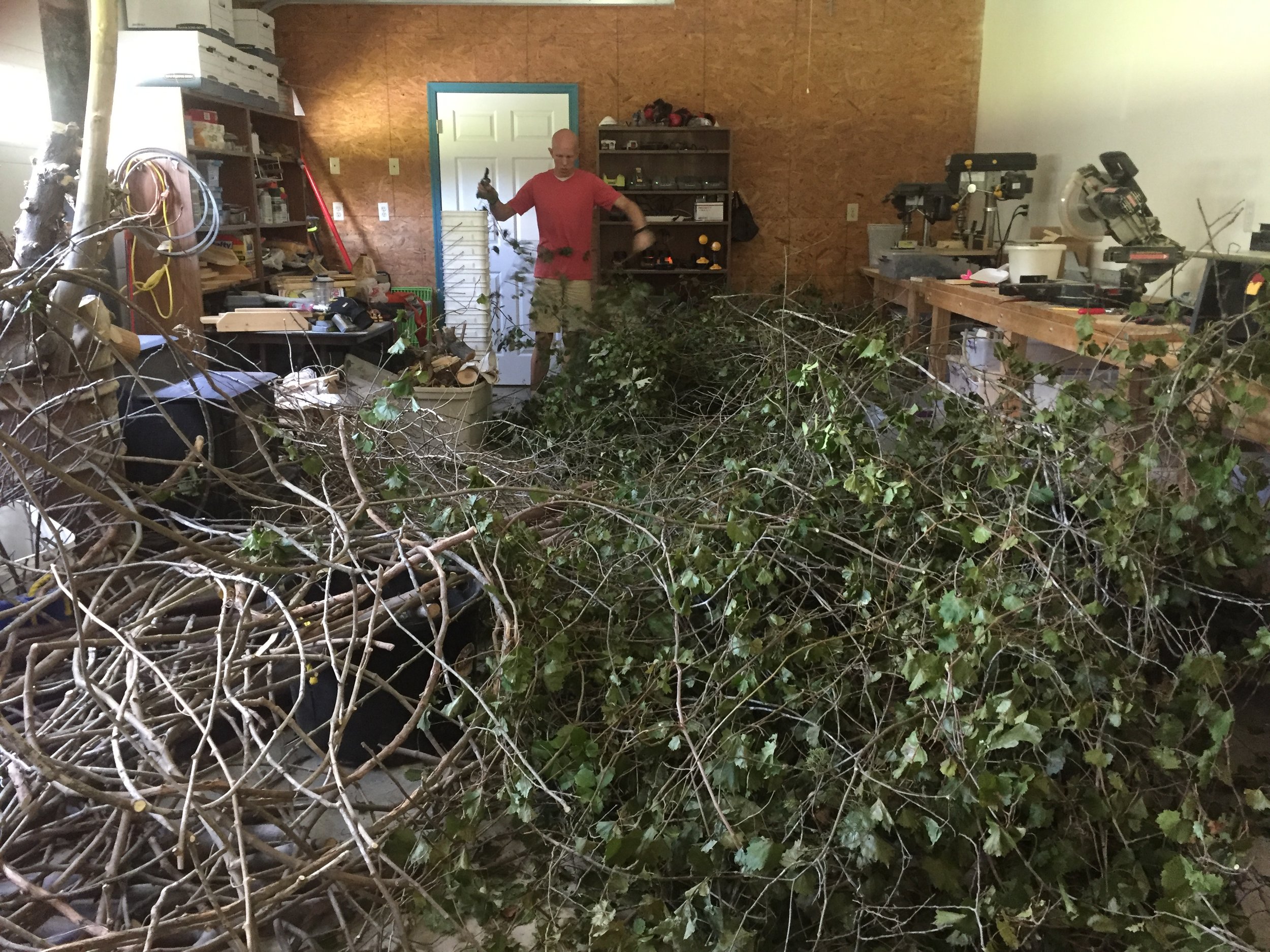Are You an Extreme Pet Owner?
Well hello everyone!
The year is flying by and I’m totally guilty of not adding monthly blog posts. Now that we’re actually operating a “working farm” there is a lot less down time. This also means that scheduling pickup orders is very, VERY difficult. Also, after more than a decade of posts, it’s been hard to come up with anything new and exciting.
But first, just a quick recap of how things have been going with the rescue. We’ve had 28 chinchillas surrendered and 22 chinchillas adopted so far. We have at least a dozen chins available for adoption. We may have to break down and bring back the bios pages. Thoughts?
Aside from the chinnies, we’ve been working sporadically to groom the land for the orchards and trellis systems for our organically grown toy parts. The soil here is rich, but we have to actually wrestle it from the native trees. The new heat/AC system is working great. The air conditioned workshop has been absolutely wonderful. It allows us to store fresh cut limbs out of the sun and rain while we process the various batches. The office got a facelift and finally got baseboard and other trim installed. The wall in the rescue room that had ugly OSB now has some beautiful bead board overlay.
Ok, so now that we’ve got the updates out of the way, let’s move on to something more serious: Complacency vs. Neuroticism
After the honeymoon period of getting a new pet ends, we see where individuals sometimes morph into extremes. Those extremes would be complacency, where basic care or consideration for the pet’s natural inclination is ignored. On the other extreme is neuroticism where every minute detail of the pet’s behavior, food and water consumption, shed cycles, weight loss or gain, etc are strictly monitored. Neither extreme is helpful for the pet.
With complacency, it’s not uncommon for owners to run out of food or get nothing but bare basics. The focus is on what is most beneficial for the owner, not the pet. Expense and mess are their primary concerns. They allow pets to play unsupervised. Cage cleaning is ignored until it becomes stinky, filthy, or excessively chew worn. Chew toys are left until all that remains is wire, if they even have chew toys. Mats and fur knots develop, sometimes to the point of dreadnoughts. Fractures go untreated until the chinchilla chews off a limb.
Recently we got word from an individual (name withheld, but story and pictures shared with permission). The owner had a young chinchilla and kitten who were raised together. Both got along well and even “played” together. After a few years, the owner figured the natural instincts of predator and prey were nullified. Then the inevitable happened. The cat mauled the chinchilla during out of cage playtime.
On the other extreme we see overly anxious owners. They tend to worry themselves sick over their pet. This does translate to the animal since our little fur babies can pick up on our emotions. An anxious owner can make their pet anxious, lose weight, slip fur, develop behavior problems, bark excessively, have loose stool, chew their fur, etc.
Bloat (gas) in a chinchilla literally causes the intestines to burst.
The problem with being overly anxious is the tendency to second guess, doubt and commiserate with others. Internet forums seem especially attractive then. Veterinarians have a difficult job when it comes to dealing with pet owners. Many times the professionals “do something” just to appease the owner. Here is an example that we actually see quite often. Chin goes to the vet for XYZ. Vet prescribes prophylactic antibiotics. The drug then causes gastric stasis, so vet prescribes other meds to stimulate the gut, chin then bloats, more meds added to treat bloat, side effects are compounded, now the belly is full of sweetened medications, chin stops eating entirely, owner panics, vet then prescribes hand feeding, more trips to the vet. More tests. cha-ching!$$
The more anxious an owner is, the more they want to intervene. Basically, these types of owners are guilty of a form of overkill. The more they intervene, the worse the situation becomes. Folks, this is especially true if a chinchilla is ill. The body has an amazing ability to self-heal. Sometimes we need to step back and allow that to happen.
Do you find yourself in either of the two extremes? My advice to both is simple: Step up your game, or relax. The hard part is figuring out when to do either. For those who are anxious, hopefully we’ve been able to provide a bit of no-nonsense advice. For those who are complacent…well, you’re probably not reading this anyway. XD



